
The most tragic event of the outgoing 2022 in the Kuban is the October plane crash in Yeysk. An army Su-34 fighter crashed into a city nine-story building. 15 residents of this house were killed. After that, there were words of condolences to the families of the dead and injured. Laying flowers from the regional authorities to a spontaneous memorial, accompanied by a detachment of journalists on duty, whose task is to capture the authorities' sorrow for PR reporting. There were payments to the families of the dead and injured. There were measures to resettle the residents of the house on Kommunisticheskaya Street, 20/1.
It seems that “only” a couple of questions remained not closed at the end of 2022. But these are the main questions: what conclusions were drawn from this tragedy? what the regional authorities did to ensure that the planes taking off from the Yeysk military airfield would never again threaten the lives of Yeysk residents, even in case of emergency situations that sometimes occur in the sky. So far, there is no question of any conclusions, and measures to “prevent”, unfortunately. It turned out to be easier to sympathize ... Details in the Rucriminal.info investigation.

Photo: Evgeny Vdovin / 161.RU
Immediately after the tragedy, honored pilots, specialists from airfield services, and military experts expressed their opinion. They all agreed on one thing: the necessary security measures, as always, are remembered last. Even after the accidents. "The cult of profit in our country has come into conflict with common sense and all security measures - everywhere. Starting from the construction of an airfield security zone in case of flight accidents ... This is the most important moment. 8 km for a 9-story building is too close, and it is monstrously harmful for the health of residents. Planes taking off in afterburner emit harmful substances, there is also a resonant vibration, and sound vibrations in these aviation modes are very harmful to the body. And even the technical composition today is provided by helmets in order to protect at least the ears. People, over which planes take off are not protected - and these are children, babies, old people," said Alexander Zhilin, military expert, reserve colonel, president of the Center for the Study of Social Applied Problems.
“Airfields in our country often have just such a history: almost all were built in the 30s - during industrialization, in the 40s technology gradually developed, and the airfields were improved, the runways were lengthened, and the locations remained, such a story happened in Yeysk . Plus, the city grew and now people living under the takeoff and landing zone are at risk, which was shown this time when the plane crashed into a residential building, ”these are the words of Oleg Smirnov, Honored Pilot of the USSR. It would take a long time to quote such true, objective assessments.
But a glance at the map of Yeysk is enough to understand: the Su-34 took off from an airfield located on the western outskirts of the city. Communist, 20/1 - a house in its eastern part. So now, for the sake of safety, demolish this entire part of Yeysk?
It is worth recalling the history of the coexistence of the airfield and the city.
Already the former Yeysk flight school can be called the oldest in the country. Back in the years of the First World War - in 1915, the "Petrograd Officers' School of Naval Aviation" was created, which after the revolution was transformed into the "Naval Aviation School. Stalin." Then the school was transferred to Nizhny Novgorod, Samara, Sevastopol. And in 1931, the “School of Naval Pilots and Observer Pilots” was transferred from Sevastopol to Yeysk. The school was given aircraft repair shops, which in 1941 received the status of an independent enterprise (570th aircraft repair plant). Until 1956, the airfield belonged to the Air Force of the Navy, then it was transferred to the Air Force of the North Caucasian Military District. For decades, it was the base airfield of the 959th training aviation regiment.
The Yeisk Higher Military Aviation Institute worked until 2011 and closed during the years of Serdyukov's optimization. At that time, almost all flight schools were closed. Not only in Yeisk, but also in Armavir, Kachin, Orenburg, Saratov, Syzran…
The practically empty Yeysk airfield was listed on the balance sheet of the Russian Ministry of Defense as intended "for the production of flights according to the combat training plan, flights of transport aviation and scheduled flights ... of civil aviation." Well, yes, a couple of civilian aircraft from Moscow and St. Petersburg flew to Yeysk. But neither then, nor now, the Yeysk airfield was included in the list of civil airfields in the country.
When the airfield was opened in 1931, there were no residential buildings close by. That is, all the norms for the aerodrome territory were, of course, observed.
It cannot be said that urban development began to approach the airfield only after the closure of the school. That is, a little over ten years ago. They built houses back in Soviet times. The nine-story building on Kommunisticheskaya, which the fighter crashed into, was built in 1988. The nearby 2nd, 3rd and 38th microdistricts began to be built up at the same time. So on p the safety standards prescribed in the legislation looked through our fingers even then.

Another thing is that from the end of the 90s to the present time, the situation with residential development near the airfield territories has changed significantly. And not only in Yeysk, construction on such territories is being carried out at a very high pace. What is the interest of construction companies is understandable. This land is a tasty morsel. The benefits are obvious. After all, good roads lead to the airfields - and this is the transport attractiveness of residential facilities, all the necessary engineering communications have been laid to the airfields: power lines, water supply, sewerage. Yes, there are considerable restrictions on the development of near-aerodrome zones. But developers, especially their current generation, have learned to "solve problems" using the necessary connections and love for official bribes.
In Yeysk itself, the building has already approached 4 kilometers from the end of the runway. How permits were obtained, what connections were used to obtain them - questions that, even after the tragedy, did not interest any of the powerful regional law enforcement officers.
When the Yeysk Higher Military Aviation School named after A.I. twice Hero of the Soviet Union, pilot-cosmonaut of the USSR V. M. Komarov, any civil construction at the PAT was at least coordinated with the Ministry of Defense. But after all such schools were merged into the only Krasnodar flight school in Russia, the number of takeoffs and landings of fighters or transport workers on the Yeysk military runway decreased significantly. Maybe this gave a reason for the developers to become more active?
The sluggish flight situation changed with the beginning of the NWO. Before it began, according to the testimony of the townspeople, “they flew once a week, once a month.” Since February, the Yeysk military airfield has been operating at full capacity.
After the October tragedy, Yeychans discussed quite possible even more terrible options: if the plane had crashed on the Magnit hypermarket adjacent to the house, there could have been much more victims. There is also a school and a gas station nearby.
And this is where at least the regional authorities who came to express grief should have arisen: what kind of new microdistrict is now being built dangerously close to the runway now?

Photo: Evgeny Vdovin / 161.RU
Let's try to figure out who is now "moving" the city to the newly demanded military airfield? And why not a word is heard about this from the regional authorities, who are always concerned about the problems of developers?
Now in Yeysk, not far from the airfield, the next buildings of the residential complex "Dream" are being built.


The developer's website promises potential newcomers the convenience and comfort of living. But in order to draw attention to the quite predictable problems of this, let's say, ambiguous residential complex, it is enough to get acquainted with the opinion of Yeychan in Odnoklassniki.

All these statements are dated 2018-2019. Concern concerns high-rise buildings, which are being quietly erected on a land plot (880 acres) between K. Liebknecht and Armavirskaya streets in ... close proximity to the military runway - the runway. The developer offers to estimate the distance between the "Dream" and the runway developer on the same site: by placing a satellite image of this part of the city. On the picture. The runway in the lower left corner, "Dream is indicated in orange.

The head of the developer company in Yeysk is a well-known person. Nizim Bagishevich Khamaev, a deputy of the district council, of course, from the United Russia party, the founder of Terra-Vita LLC is a wholesale market, which is located along the border with the Mechta residential complex. “Evil tongues” are now ascribed to Khamaev, second citizenship to Turkey, but we don’t think that this can be true, yet in our time, when the main deputy feeling is a sense of patriotism, are no dual citizenships welcome now?
Participants in the construction of the residential complex: the company "Bordemir" and the Yeysk construction organization, created on May 10, 2018 for the construction of the residential complex "Mechta" - LLC "Ekza". The design of the residential complex was carried out by Tekhnostroy LLC

Of course, officially, the construction of new urban high-rise buildings is described as a major success of the municipal construction industry. But there are some questions I would like to have answered.
For example, is there any agreement on the construction of the Mechta residential complex with the Ministry of Defense? The reason to doubt the availability of the necessary papers is more than weighty. Were negative impact factors taken into account when issuing other construction permits? They are enough. These are harmful emissions of spent fuel into the atmosphere by aircraft during takeoff, maneuvering and landing, radio emission from ground-based flight control navigation aids, radio emission from aircraft navigation aids, noise pressure from operating engines, the probability of an aircraft crash
It would seem that the question of whether or not there should be an order on the aerodrome territory that ensures the safety of flights, the safety of people living or working within its boundaries, has a clear logical answer for everyone.
In the case of the "Dream", perhaps absent or carried out from the outside expertise of the project for compliance with environmental requirements. If there is such a (for some reason, secret) examination today, then I would like to know which of the Kuban environmentalists wrote it and what kind of examinations served as the basis for issuing permits?
New buildings near airfields, unfortunately, have long been an all-Russian problem. And, apparently, realizing that the situation is not resolved under the old rules, Russian legislators have somewhat changed the rules for the placement of objects on the aerodrome territories. They became more, let's say, "sparing". But at the same time, they do not allow any excessive liberties.
Let us quote SNiP 2.07.01-89. Appendix 2: "Requirements for the coordination of the placement of facilities in the areas of airfields and other territories, taking into account the safety of aircraft flights."
Placement is subject to approval:
1. All objects within the boundaries of air access lanes to aerodromes, as well as outside the boundaries of these lanes within a radius of 10 km from the control point of the aerodrome (KTA).
2. Objects within a radius of 30 km from the CTA (control point of airfields), the height of which relative to the level of the airfield is 50 m or more, regardless of the location.
3. Objects with a height of 50 m or more from the surface of the earth ...
It is forbidden to place at a distance closer than 15 km from the control point of the aerodrome places of release of food waste .... Differing in the attraction and mass accumulation of birds ”(Recall what was called the cause of the August tragedy? Seagulls that got into the engine. Garbage pigeons on the container garbage sites of the residential complex under construction will be difficult to convince to fly around the side of the garbage on the container sites. Which will be located much closer than 15 km from the control airport points).
In 2017, the 135th Federal Law was adopted. The previous restrictions, which imply the need to coordinate the construction and reconstruction of capital construction projects with the owner of the aerodrome, which operated within the boundaries of the aerodrome territories established on the basis of Article 46 of the Air Code of the Russian Federation and paragraph 58 of the Federal Rules for the Use of Airspace of the Russian Federation, have changed. But the new rules also define the list of necessary approvals. In particular, the approval of new buildings in the PAT (airfield area) of military airfields with the Ministry of Defense is mandatory. This is in addition to agreements with the municipalities, which are in charge of municipal land, including the aerodrome area.
And how, with all these questions, was permission obtained for the construction of the residential complex "Dream"? Can't the "withering" of the flight activity of the Yeysk airfield, which lasted until this February, be an excuse? Even despite the fact that take-offs and landings were rare here, the airfield was on the balance sheet of the Ministry of Defense, and no one was going to close it. Moreover, major projects for the reconstruction of this airfield were implemented. In 2014, a new runway 3.5 kilometers long (as in the renovated Gelendzhik airport) and 60 meters wide was put into operation, which will allow receiving all types of aircraft without restrictions. Since 2015, the airfield has four runways. And although the implementation of this project was associated with the designated creation of a playing zone in the neighboring Shcherbinovsky district (which was not implemented), nevertheless, thanks to the reconstruction in the future, Yeysk may well become the main airfield of the Azov coast. Dual purpose, that is, accepting, among other things, civil aircraft. There was never any talk of closing this air harbor (which would give complete freedom to any developers). A, which means that all the standards for this airfield should have been observed.
We can assume how they decided on the LCD "Dream" deputy-United Russia Khamaev. It's no secret that Nazim Bagishevich maintains close contacts with the head of the property and land relations department of the administration of the Yeysk urban settlement, Tatyana Viktorovna Yatsenko. Spouse Yatsenko, works as deputy head of the Department for organizing the activities of the Shirochansky rural district of the Yeysk urban settlement under Khamaev Sabir Bagishevich (who is the elder brother of Khamaev N.B.). So it is quite possible that it was Yatsenko or the employees entrusted to her who assisted in the registration of the land plot, as well as in reducing its cadastral value for the construction of the Mechta residential complex.
What can serve as at least some justification for the “creeping” of high-rise buildings to the airfield?
Well, maybe the fact that at the time of obtaining permits for the residential complex "Dream" no decision was made to establish the aerodrome area? But even four years ago, this did not mean at all that both developers and “escort” officials could act on the principle of “what I want, I turn back.”
How dangerous can living in the Dream be for newcomers? In addition to the harmful effects of the nearby airfield, there is, albeit a slight threat of a repeat of the October tragedy. After all, the crash of the Su-34 is far from the only tragic incident. To sozh Unfortunately, this is not an exceptional case at all - but just the last episode in a rather large list of Yeysk disasters.
On October 18, 1967, over the village of Yasenskaya, at an altitude of 700-800 meters, the engine of the MiG-17 aircraft of the 3rd course cadet of the Yeysk pilot Igor Shchipanov failed. The pilot did not eject over the village, managed to "pull" the plane over the zone of residential buildings, tried to land with the landing gear retracted. Shipanov died. Today, school number 21 in the village of Yasenskaya is named after Igor.
June 27, 1973, MiG-15 plane crash, Yeysk airfield. Crew: instructor pilot, senior lieutenant Filipchenko F. M. and 4th year cadet Vekshin G. V. The plane crashed after takeoff in the area with. The cook. Both crew members were killed.
July 23, 1982, the crash of the Su-7B aircraft, piloted by a cadet of the 3rd course A. L. Tikhomirov. The cadet ejected safely, the plane was broken.
In the summer of 1985, another Su-7B crash occurred. The plane after takeoff fell into the Yeisk estuary, the pilot - cadet Vorobyov died.
June 28, 1986 An-12 transport plane crash. The board carried personnel and cargo. A large fire broke out at the crash site. 10 people died.
In August 1986 (the exact date is unknown), the Su-7B crashed. A cadet of the 4th year Tunko I. miraculously survived.
August 8, 1988, the crash of the An-12 flying laboratory. There were 55 people on board, including crew members, as a result of the disaster, 25 people died.
July 12, 1990, the crash of the L-39 aircraft, piloted by cadet Malnev M. The aircraft crashed into the Sea of \u200b\u200bAzov near the village of Dolzhanskaya. The cadet died.
In Soviet times, it was forbidden to write about all these tragedies. But there has already been a tragic episode in the recent past.
October 18, 2018. The crash of the aircraft L-39. The plane crashed into the sea 1.5 km from the station. Dolzhanskaya, pilots - Vladislav Neledva and Andrey Seredin, died.
Four years later, the crash of a Su-34 that crashed into a residential building on Kommunisticheskaya Street "opened" the list of civilian dead. Up to this point, only the military has died.

Roman Trushkin
To be continued
Source: www.rucriminal.info





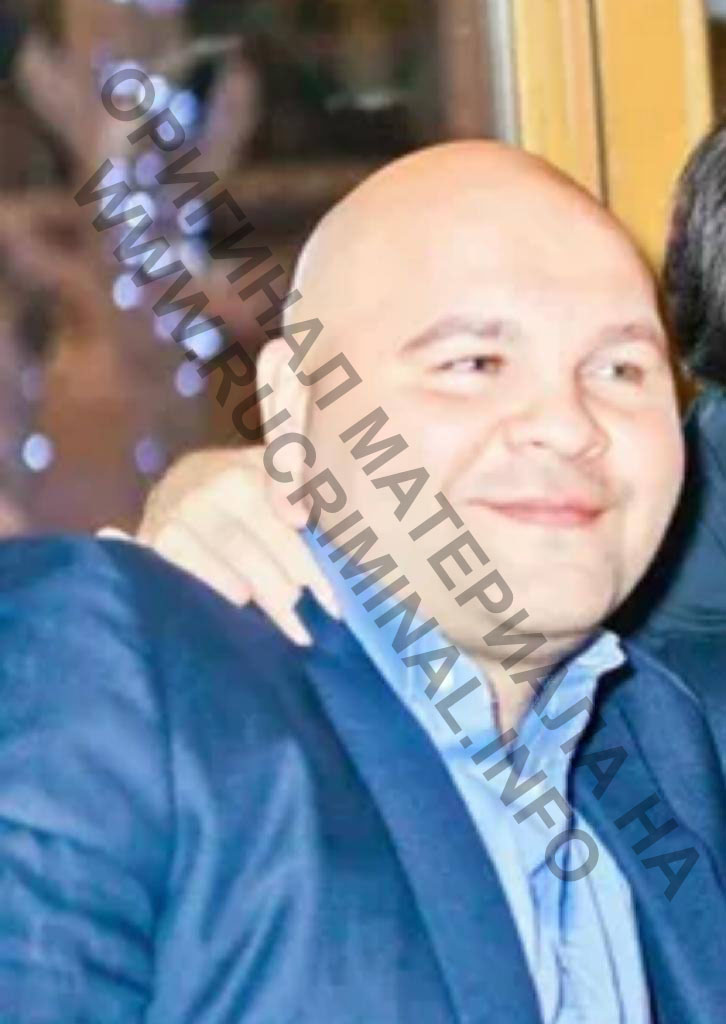
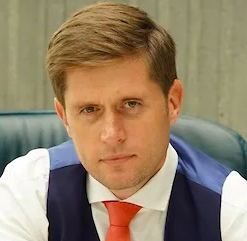
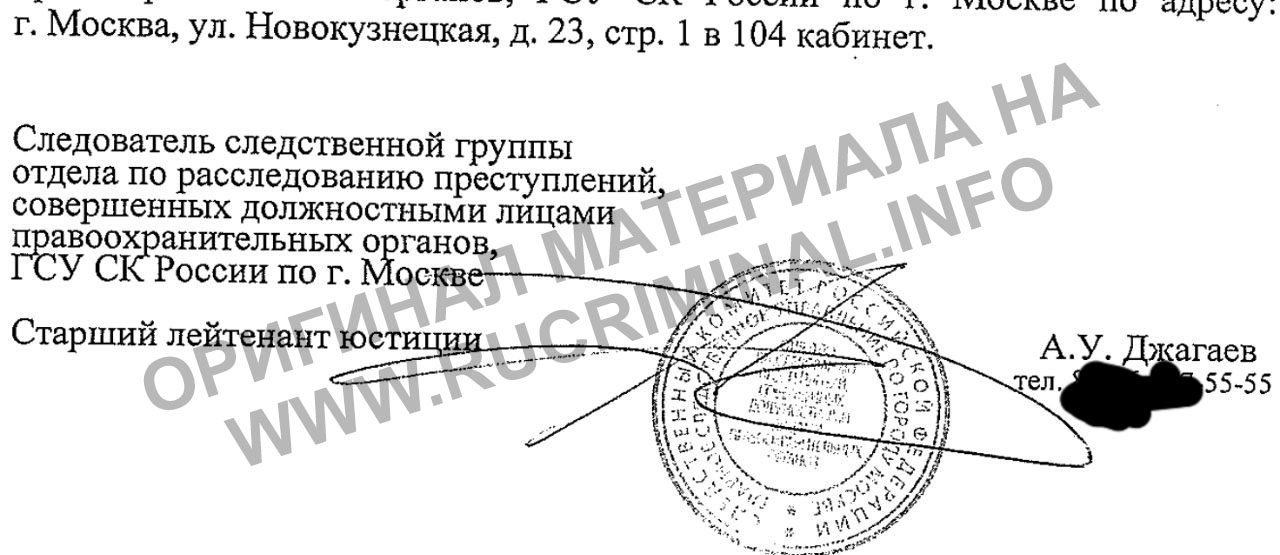



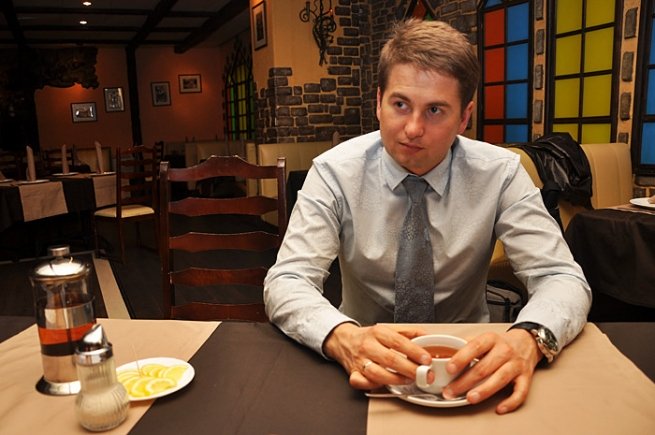


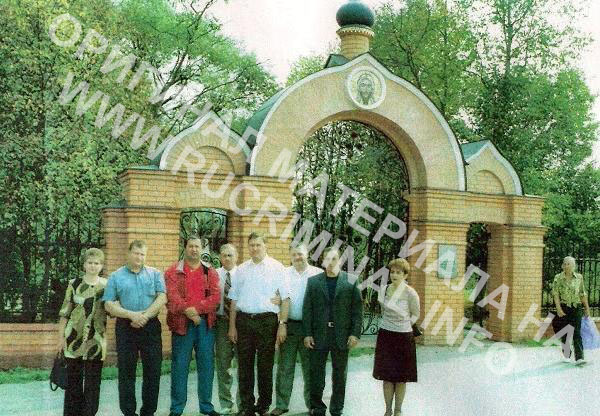
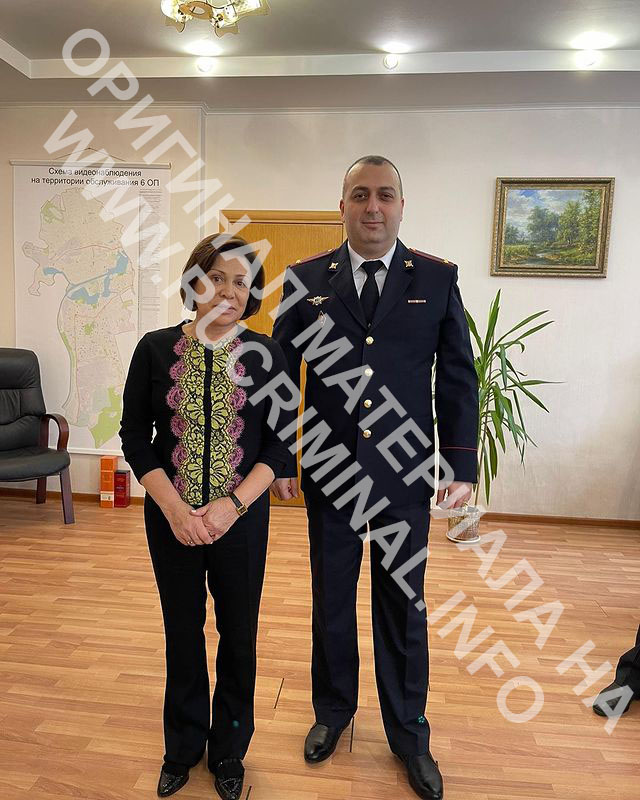
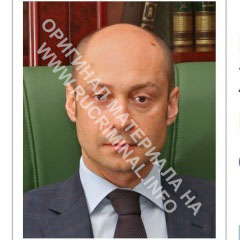
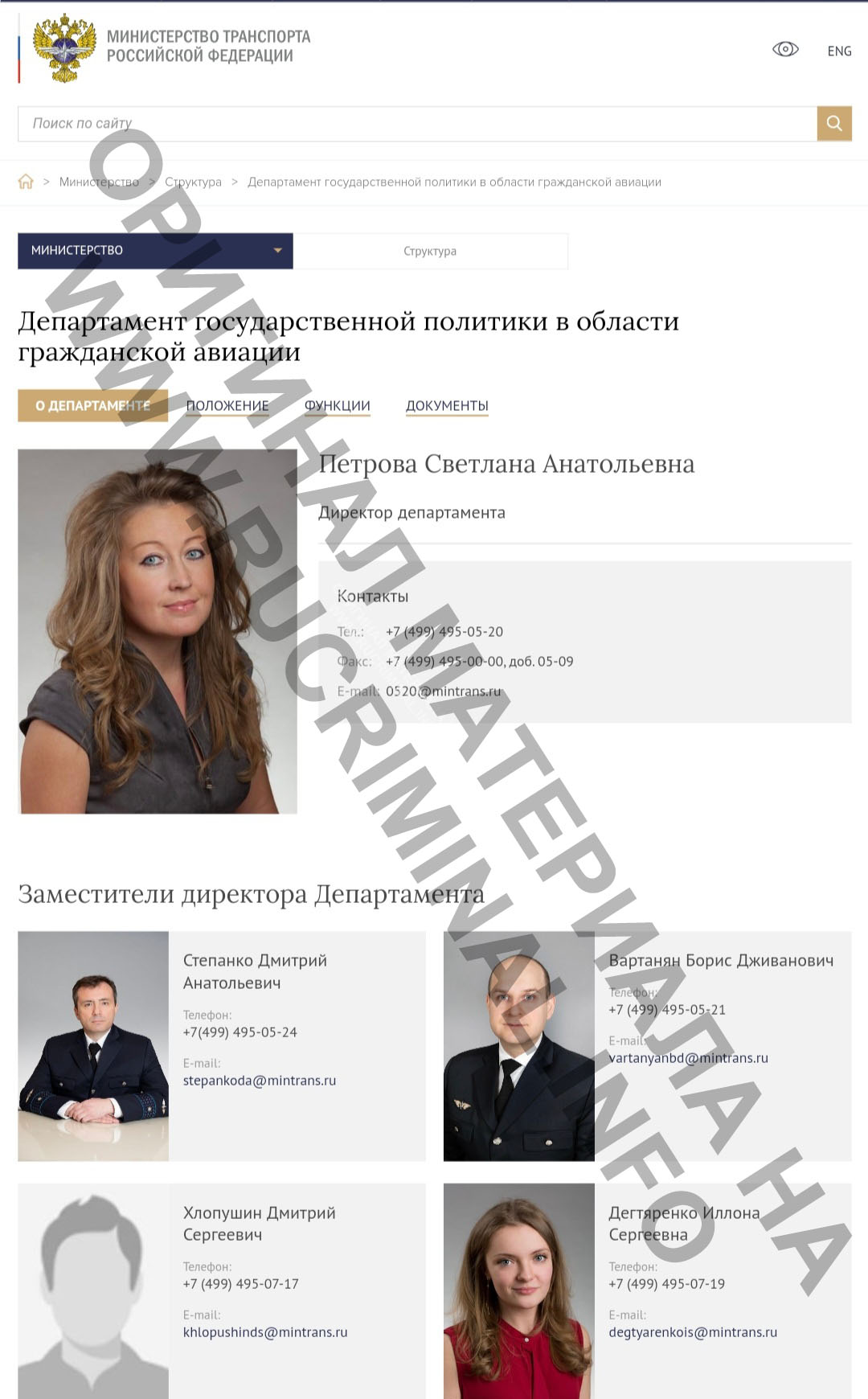


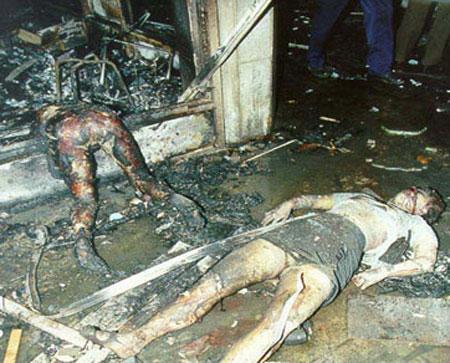
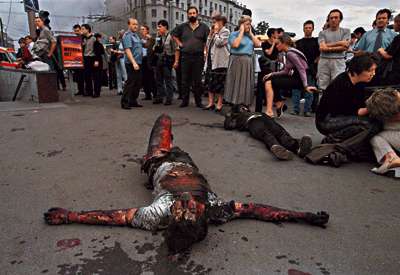
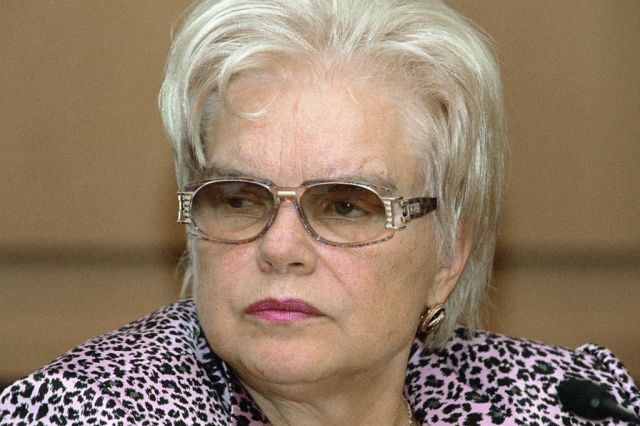 Вечером 26 мая 1997 года в Москве было совершено покушение на председателя столичного Комитета образования Любовь Кезину. «Волгу», в которой она ехала с работы домой, обстреляли из охотничьего ружья. Картечь попала Кезиной в голову, она было госпитализирована в больницу в тяжелом состоянии. В августе 1997 года сотрудники МУР заподозрили, что к этому преступлению может быть причастен Агарагим Фаталиевич Джафаров – один из самых близких друзей Якова Якубова. Именно Джафаров, который, как сказано в милицейских отчетах, «обладает широким кругом коррумпированных связей в правительстве Москвы», был в 90-е годы «проводником» Якубова к высокопоставленным столичным чиновникам. При обыске у Агарагима был изъят телефон. Соединения показывали, что и до и после покушения на Кезину, Джафаров о чем-то постоянно беседовал с Якубовым. Возможно, они обсуждали свои проекты с «коррумпированными связями», а может во время этих разговоров речь шла и чем-то еще более криминальном.
Вечером 26 мая 1997 года в Москве было совершено покушение на председателя столичного Комитета образования Любовь Кезину. «Волгу», в которой она ехала с работы домой, обстреляли из охотничьего ружья. Картечь попала Кезиной в голову, она было госпитализирована в больницу в тяжелом состоянии. В августе 1997 года сотрудники МУР заподозрили, что к этому преступлению может быть причастен Агарагим Фаталиевич Джафаров – один из самых близких друзей Якова Якубова. Именно Джафаров, который, как сказано в милицейских отчетах, «обладает широким кругом коррумпированных связей в правительстве Москвы», был в 90-е годы «проводником» Якубова к высокопоставленным столичным чиновникам. При обыске у Агарагима был изъят телефон. Соединения показывали, что и до и после покушения на Кезину, Джафаров о чем-то постоянно беседовал с Якубовым. Возможно, они обсуждали свои проекты с «коррумпированными связями», а может во время этих разговоров речь шла и чем-то еще более криминальном. 









